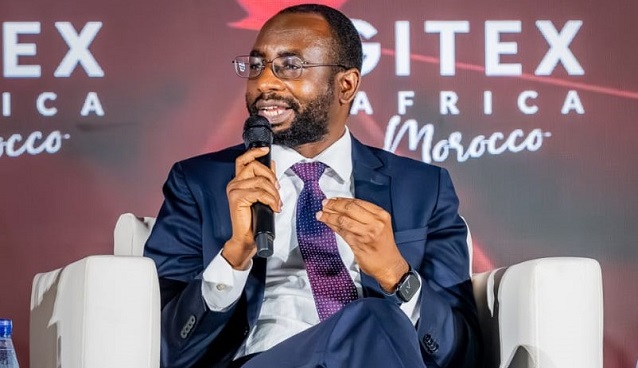E-Business
NITDA to Increase ICT Usage in Govt

National Information Technology Development Agency (NITDA), said it is embarking on a renewed determination to ensure the adequate and increased application and use of IT tools and solutions in all government establishments across the country.
Aware of the paucity of uptake and deployment of IT in especially the public sector, and in realisation of the critical need to embrace electronic systems for governance and administration, Peter Jack, director-general, NITDA , said the crusade to carry IT into all nooks and crannies of the country, into all public and private establishments, with the schools being the incubation centres, is now more urgent than before.
Jack, who spoke at the weekend in Abuja, against the backdrop of renewed vigour by the agency to ensure that IT tools and solutions used in the country meet standards set by NITDA for the purpose of ensuring rapid and widespread human capital development.
And, as a body empowered by law to drive Information and Communications Technology (ICT) growth in Nigeria, NITDA said it is renewing its efforts at encouraging government ministries, departments and agencies to adopt technology for efficient services delivery.
Jack said NITDA would push this driver further through training and re-training of government officials, which is part of its core mandate for ICT development in the country.
The NITDA’s DG NITDA said the agency’s core strategy is to position IT as prime catalyst for turning Nigeria into a ubiquitous society. “And to achieve this, those in government must begin to involve ICT in their day to day activities.”
In this regard, he said NITDA had in the recent times organised trainings for legislators as well as lecturers in the nation’s universities. These trainings are aside the regular training programmes and scholarships for youths and undergraduates, which the agency undertakes periodically across the country.
According to Jack, NITDA will continue to encourage ICT usage in government while it will not shy away from its responsibility of giving government the right recommendations for ICT acquisitions.
Under the NITDA ACT of 2007, the Agency is to create incentives to promote the use of information technology in all spheres of life in Nigeria including the development of guidelines for setting up of information technology systems and knowledge parks. And part of those incentives, Jack said, has been in form of ICT trainings and scholarship programmes for government officials and youths.
The agency is also saddled, among others, with the responsibility of “developing guidelines for electronic governance and monitor the use of electronic data interchange and other forms of electronic communication transactions as an alternative to paper-based methods in government, commerce, education, the private and public sectors, labour, and other fields, where the use of electronic communication may improve the exchange of data and information.”
NITDA also advises the government on ways of promoting the development of information technology in Nigeria including introducing appropriate information technology legislation to enhance national security and vibrancy of the industry.
E-Business
Google Blocks 5.1Bn Harmful Ads in 2024, Suspends 39m Accounts

Google’s 2024 Ads Safety Report revealed how artificial intelligence is now a frontline defense against harmful online content, blocking 5.1 billion ads, restricting 9.1 billion more, and suspending over 39 million advertiser accounts, most before a single ad was shown.

The crackdown comes as scams become more sophisticated, with many leveraging AI-generated content or impersonating public figures.
Google’s advanced AI models, powered by Gemini, helped detect fraud faster than ever, spotting signs like stolen payment info, fake businesses, or coordinated scam networks.
In Africa, including Nigeria, the impact is especially important. Impersonation scams and misleading political ads remain a major concern.
In response, Google updated its Misrepresentation policy, deployed a team of 100+ global experts, and took down over 700,000 scam-related advertiser accounts, leading to a 90 percent drop in reported impersonation scams.
With nearly half the world voting in 2024, Google also removed over 10 million election-related ads for failing to meet transparency rules requiring verified identities and clear sponsorship disclosures.
In his reaction, Alex Rodriguez, general manager for Ads Safety at Google, said these numbers show what AI can do when it’s focused on safety.
“We rolled out more than 50 AI model upgrades in 2024, helping us act faster and smarter—stopping threats before users even saw them,” Rodriguez added.
While AI handles large-scale enforcement, human reviewers now focus on complex cases.
Google continues working with global regulators, industry partners, and organizations like the Global Anti-Scam Alliance to keep ahead of evolving threats.
E-Business
DG NITDA Tasks Africa to Lead the AI Revolution Through Strategic Leadership, Inclusive Innovation

The Director General of the National Information Technology Development Agency (NITDA), Kashifu Inuwa CCIE, has urged industry leaders across the continent to integrate Artificial Intelligence (AI) into their business, organisational, and operational models to unlock new opportunities, redefine leadership, and drive smarter decision-making toward making Africa deeply rooted in AI-driven innovation.

Inuwa made this call when he spoke on “Harnessing AI for Strategic Leadership” during a panel session at the Main State of the GITEX Africa 2025 held in Marrakech, Morocco.
The aim of the panel session was essentially to explore how data-driven and intelligence-led strategies can transform business models, optimise resources, and unlock new opportunities through AI-powered processes across various nations.
Speaking to an international audience of policymakers, technologists, and investors, the DG positioned Africa, particularly Nigeria as a rising force in the global AI landscape, championing a people-first and strategy-led approach to AI development and governance.
The DG argued that to be effective in today’s dynamic environment, leaders must evolve into AI-driven leaders and leverage technology not just as a tool, but as a partner in decision-making.
“AI is shifting the skills we value today, as well as the processes we use to do our daily work, so to drive strategic leadership, you need to be an AI-driven leader and find a way to use AI as a tool to create co-intelligence whereby you bring people and computers to work together to deliver your strategic vision as a leader,” he noted.
While urging leaders to combine AI with the unique strengths of their teams to deliver real business value, Inuwa stated that “Strategy must always come first, and technology second.”
He outlined four principles for effectively utilising generative AI which are inviting AI to the tale, maintaining human oversight, designing models with guardrails, and adopting a mindset of continuous improvement.
Inuwa explained that AI is invited to the table by giving it a role in organisational tasks, maintaining human oversight to correct bias and misjudgment, designing guardrails to ensure privacy ethics, and inclusivity, and adopting a mindset of continuous improvement by treating today’s AI as the least capable version that can be used.
He however warned against the risks of deploying AI systems built on data that fails to represent the diverse realities of global societies. Stressing the need for digital visibility of all cultures and citizens, he cautioned that if data doesn’t see a community, the system won’t see it either.
Introducing NITDA’s approach to governance in regulating AI through the Regulatory Intelligence Framework that is anchored on the 3 pillars of Awareness, Intelligence and Dynamism.
“In our approach to regulating AI in governance, we have a framework we call Regulatory Intelligence Framework, which as a regulator we need to be aware of the environment, we need to be dynamic because things change, and we also need to be intelligent. We need to know the data and make sense out of it,” he disclosed.
“Then we have 2 approaches, the first one is a rule-based where you can come up with certain guidelines and expect people to comply with them and we have a non-rule based, which allows them to build use cases, and based on those use cases, put the guard rails and agree on the best practices, which is always the best when it comes to AI governance,” he added.
Envisioning Africa’s AI future in the next 5 years, Inuwa painted a visionary picture where the continent will integrate AI into solving real-world challenges in every economic sector thereby leapfrogging development gaps.
Inuwa firmly averred that by augmenting human capability with AI, the continent can unlock unprecedented levels of innovation, efficiency, and inclusive growth.
“We missed the first, second, and third industrial revolutions, but this fourth one, we must lead it and not just follow.” He concluded.
Other industry leaders who shared their experiences and insightful ideas at the panel session were the Special Envoy on Technology, Republic of Kenya, Philip Thigo, CEO Pesalink, Gituku Kirika, and the Head of Africa, Open AI, Emmanuel Lubanzadio.
E-Business
NIPOST in Intensive Care, Needs Reforms Need to – Kekemeke

Nigerian Postal Service (NIPOST) is in Intensive Care Unit (ICU) and needs urgent reforms to revive it, according to Isaac Kekemeke, board chairman of the service.

Kekemeke, who spoke at a workshop organised for NIPOST staff in Abuja yesterday, added that it is now time to go the whole hog to reform and make NIPOST fulfill its destiny to compare and compete favourably with multinational postal agencies.
“The approach may not be palatable at all times but we need to take the tough but necessary decisions to exit the intensive care unit. We are either out of ICU in good health or head for the morgue. NIPOST either functions effectively now as a commercialised state operator or gets privatised, so that myself, the PMG, and a good number of you risk the loss of our jobs,” the chairman said.
No doubt, he added, “Change is not always easy as many loathe change because of the uncertainty it brings but it is in my place to urge you all to embrace the change we advocate.”

 Telecom3 days ago
Telecom3 days agoBanks, Telcos Mull New Billing Plans for USSD Airtime Payments

 E-Business3 days ago
E-Business3 days agoNIPOST in Intensive Care, Needs Reforms Need to – Kekemeke

 General News3 days ago
General News3 days agoFG Launches Survey to Encourage Nigerian Digital Firms Spread Across Africa

 E-Financial3 days ago
E-Financial3 days agoLeadway Partners Firm to Launch Retail Insurance Product for Women

 News3 days ago
News3 days agoDG NITDA Urges Foreign Investors to Tap into Nigeria’s Digital Future

 Telecom3 days ago
Telecom3 days agoMTN, Digital Encode, Back eBusinesslife Girls In ICT Campaign

 News3 days ago
News3 days agoEFCC Assures CBEX Investors of Fund Recovery Amid Investigation

 Telecom2 days ago
Telecom2 days agoDRIF25 Brings Together 1,000 Delegates in Lusaka

























